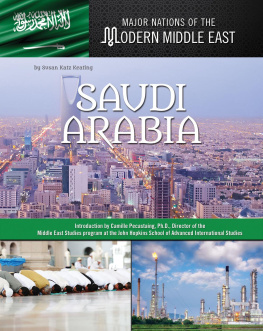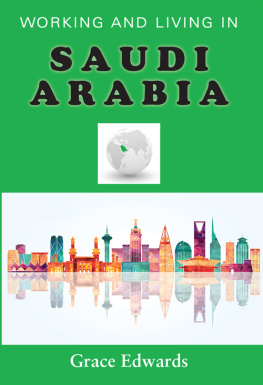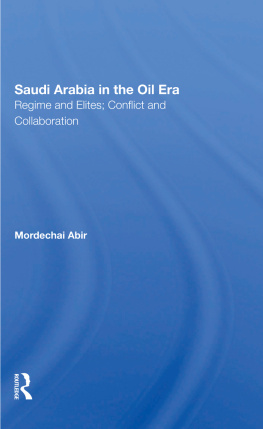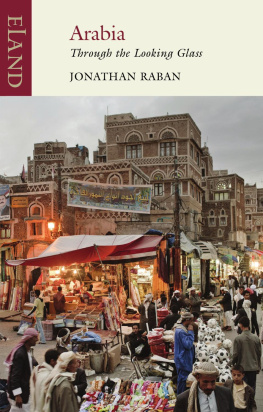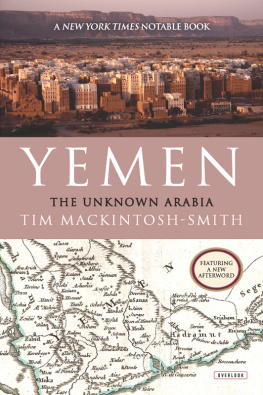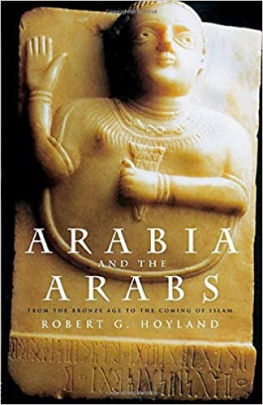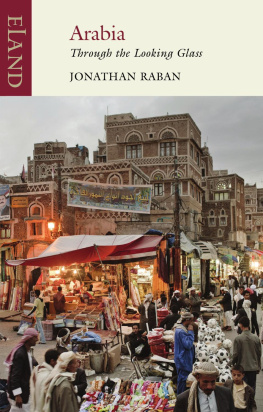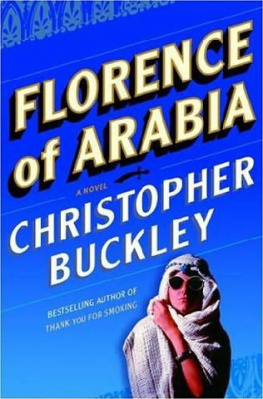ROUTLEDGE LIBRARY EDITIONS: HISTORY OF THE MIDDLE EAST
Volume 5
Explorers of Arabia
First published in 1978 by George Allen & Unwin (Publishers) Ltd
This edition first published in 2017
by Routledge
2 Park Square, Milton Park, Abingdon, Oxon OX14 4RN
and by Routledge
711 Third Avenue, New York, NY 10017
Routledge is an imprint of the Taylor & Francis Group, an informa business
1978 George Allen & Unwin (Publishers) Ltd
All rights reserved. No part of this book may be reprinted or reproduced or utilised in any form or by any electronic, mechanical, or other means, now known or hereafter invented, including photocopying and recording, or in any information storage or retrieval system, without permission in writing from the publishers.
Trademark notice: Product or corporate names may be trademarks or registered trademarks, and are used only for identification and explanation without intent to infringe.
British Library Cataloguing in Publication Data
A catalogue record for this book is available from the British Library
ISBN: 978-1-138-22002-7 (Set)
ISBN: 978-1-315-39118-2 (Set) (ebk)
ISBN: 978-1-138-22585-5 (Volume 5) (hbk)
ISBN: 978-1-138-22586-2 (Volume 5) (pbk)
Publishers Note
The publisher has gone to great lengths to ensure the quality of this reprint but points out that some imperfections in the original copies may be apparent.
Disclaimer
The publisher has made every effort to trace copyright holders and would welcome correspondence from those they have been unable to trace.
Explorers of Arabia
From the Renaissance to the End of the Victorian Era
ZAHRA FREETH
and
H. V. F. WINSTONE
First published in 1978
This book is copyright under the Berne Convention. All rights are reserved. Apart from any fair dealing for the purpose of private study, research, criticism or review, as permitted under the Copyright Act, 1956, no part of this publication may be reproduced, stored in a retrieval system, or transmitted, in any form or by any means, electronic, electrical, chemical, mechanical, optical, photocopying, recording or otherwise, without the prior permission of the copyright owner. Enquiries should be addressed to the publishers.
George Allen & Unwin (Publishers) Ltd, 1978
ISBN 0 04 953009 7
Printed in Great Britain in 11 on 12 point Baskerville by Butler & Tanner Ltd, Frome and London
A word of explanation is called for concerning the people chosen to represent the story of exploration and discovery in Arabia. We have selected travellers whose achievements seem to us praiseworthy or neglected, but in doing so we have inevitably made important omissions. A powerful case could be made for the inclusion of the Spaniard Ali Bey, the Swede George Wallin, the Strasburgian Charles Huber, and Germans Johann Wild, Baron Nolde and Ulrich Seetzen. All made notable journeys of discovery. We have brought them into our story wherever appropriate, but we do not pretend that our selection is without subjective preference. In our own century there have been remarkable explorers and outstanding personalities whose inclusion would have added considerably to the picture of Arabia as it built up in the Western mind over the centuries, culminating in the mapping of the last unexplored deserts of central Arabia, particularly the Rub al Khali or Empty Quarter, between the two Great Wars. Few who went before them achieved more by way of discovery, or contributed more to the sum of our knowledge of the lands and people of Arabia, than H. St John Philby and Captain W. H. I. Shakespear; but recent works on both men are readily available, as are the findings of travellers like Thomas and Thesiger. We had to draw the line somewhere and so we started at the Renaissance and finished with the later Victorians, choosing selectively, and sometimes painfully, along the way.
We are gratefully aware that good modern biographies exist of Burckhardt, Burton and Palgrave, and we are indebted to their authors for much background information. But there still seemed a need for more detailed accounts of their Arabian journeys, which were but episodes in full and vigorous lives; for of necessity a biography can deal with them only briefly, against a much broader backcloth. As for the travellers own tales, most are out of print and of those that are available few make for easy reading. In Sir Richard Burtons case, for example, the account of the pilgrimage to Mecca and Madina is massively indigestible, with its forest of footnotes, its long and erudite conjectures and dissertations on race, religion and the basics of language. By condensing his own lengthy and discursive story we are able to separate some of the finest and most evocative travel prose ever written from the exhaustive detail that surrounds it. In telling Varthemas tale we have, wherever possible, used Edens Elizabethan English rather than the later style of Winter Jones, the former being more consonant with the voyagers own period and manner.
As for the vexed question of the English spelling of Arabic names and places, we have followed no system save that of common sense. While trying to be consistent in our own text, we have let alternative spellings stand in quotations, except where they are unnecessarily confusing or irritating. But each case has been judged in isolation. Doughty, for instance, makes sublime use of Arabic word and phrase in his unique manner of telling a story and it would be folly to change his carefully judged transliteration. On the other hand, Palgrave and Guarmani used systems of translation which seem tiresomely obtrusive in a modern text and we have changed their spellings throughout. In the case of the wandering people of the desert we have in our own text avoided the Franco-Arabic bedouin in preference for the more correct badu (collective) and badawi or badawin (singular and plural). With most other commonly occurring words we have used customary forms.
A book such as this could not be written without the help of those libraries and institutions which keep an ordered record of the past. In particular, our thanks are due to the Royal Geographical Society, the Royal Asiatic Society, the India Office, the Public Record Office, the London Library and, as always when access is needed to rare and ancient books and manuscripts, the British Museum and its associated institution the British Library. Without the generous help of the keepers, librarians and archivists of these bodies, we could not have begun to cover so wide a field, for many of the accounts of early travels in Arabia have long been out of print, some for several centuries. For assistance in establishing some unrecorded facts about Joseph Pitts we would like to express our gratitude to the City Librarian of Exeter. As for illustrations of our subjects we have had to rely on existing and mostly well-known portraits for reference, and our thanks are due to Moira Buj for her fresh rendering of the originals. In the case of the three travellers of whom no known portraits exist-Varthema, Pitts and Guarmani-we have used title pages from early editions of their own works to introduce their chapters.
Finally, it would be churlish to forget the contribution of our publisher, whose guidance brought agreement and action whenever doubt and uncertainty threatened the enterprise, or of our families whose forthright opinions and long-practised forbearance are appreciated in equal measure.


